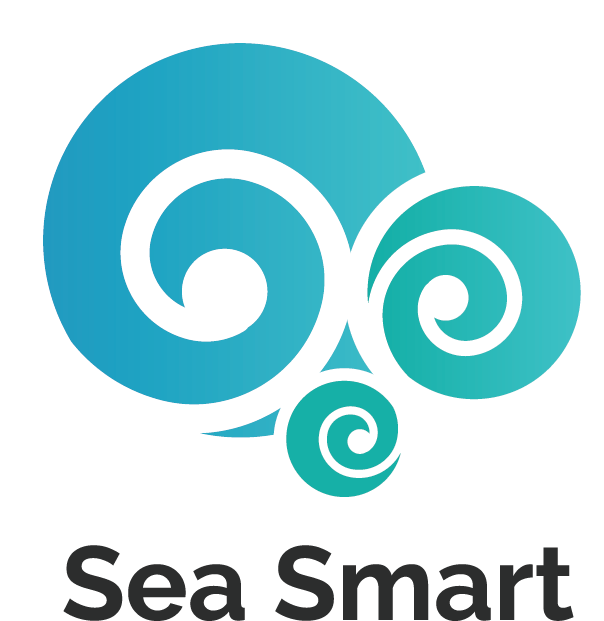Oceans and Our Mental Health
By Willow Beck, Project and Administrative Coordinator, Sea Smart
So what does mental health have to do with our oceans?
As it turns out, a lot! Close your eyes and imagine yourself on the beach. You can feel the sand beneath your toes, hear the waves crashing on the shore, and breathe in the fresh sea air. Take a moment to assess how that image made you feel. Do you feel at ease?
There are many intrinsic and extrinsic factors about the ocean that contribute to improved mental health, from providing a place to exercise to the relaxing sounds of the tide helping with sleep. The ocean offers a place to find clarity, perspective, and an opportunity to escape the hustle and bustle of daily life. Research shows that people who live near the ocean are calmer and have fewer angry outbursts(1).
Sea Smart students enjoying natureEven the colour blue makes people feel less stressed. City researchers have found that "blue spaces" improve mental health to a higher degree than green spaces, suggesting building affordable homes with ocean views(2). The oceans help take care of our mental and emotional wellbeing - we need to recognize this symbiotic relationship and help take care of our oceans in return!
What benefits does being in nature have on kids?
In 2002, a study indicated that pre-school kids were the fastest growing market for anti-depressants(3). Around the same time, researchers found that kids are spending more time indoors and behind screens(4). There is a connection between children’s mental health and spending time in nature that can’t be ignored. Nature benefits for children include positive mental health outcomes in stress, resilience, ADD/ADHD, and overall mental health(5). Even non-immersive contact with nature triggers parts of the brain associated with empathy, positive emotion, and self-awareness(6). These are the building blocks of happiness.
Being near the ocean and forming a connection to it goes deeper than a scientific understanding of its processes. The bond with nature that kids form through Sea Smart's programs creates a positive feedback loop. Children receive mental and emotional health benefits from the ocean, and the ocean also benefits when kids feel empowered to take action and become ocean superheroes.
What is Bell Let’s Talk?
Bell Let’s Talk is an initiative founded in 2010, dedicated to ending the stigma that surrounds mental health in our society. One in five Canadians will experience mental illness at some point in their lifetime, and two-thirds of those affected will not seek help(7). On January 28, Canadians will promote awareness and understanding by sharing their mental health stories. So, take a moment to reflect on how you take care of your mental health and how you can support the mental health of those around you. We need to make sure we are taking care of ourselves and each other first so that we can also take care of our planet.
References
Thrive Global: How the Ocean Affects Human Mental Health. May 13, 2019. Retrieved from https://thriveglobal.com/stories/how-the-ocean-affects-human-mental-health/.
Science Daily: Ocean views linked to better mental health. April 28, 2016. Retrieved from https://www.sciencedaily.com/releases/2016/04/160428132236.htm.
Zito, J. M., Safer, D. J., Gardner, J. F., Soeken, K., Boles, M., & Lynch, F. (2002). Rising prevalence of antidepressants among US youths. Pediatrics, 109(5), 721-727.
Hofferth, S. L. (2009). Changes in American children’s time–1997 to 2003. Electronic international journal of time use research, 6(1), 26.
Tillmann S, Tobin D, Avison W, et al. Mental health benefits of interactions with nature in children and teenagers: a systematic review. J Epidemiol Community Health 2018;72:958-966.
Psychology Today: Mind Your Body - The Brain Aquatic. July 1, 2014, last reviewed June 9, 2016. Retrieved from https://www.psychologytoday.com/us/articles/201407/mind-your-body-the-brain-aquatic.
Bell Let’s Talk: Toolkit. (n.d.). Retrieved from https://letstalk.bell.ca/en/toolkit.



